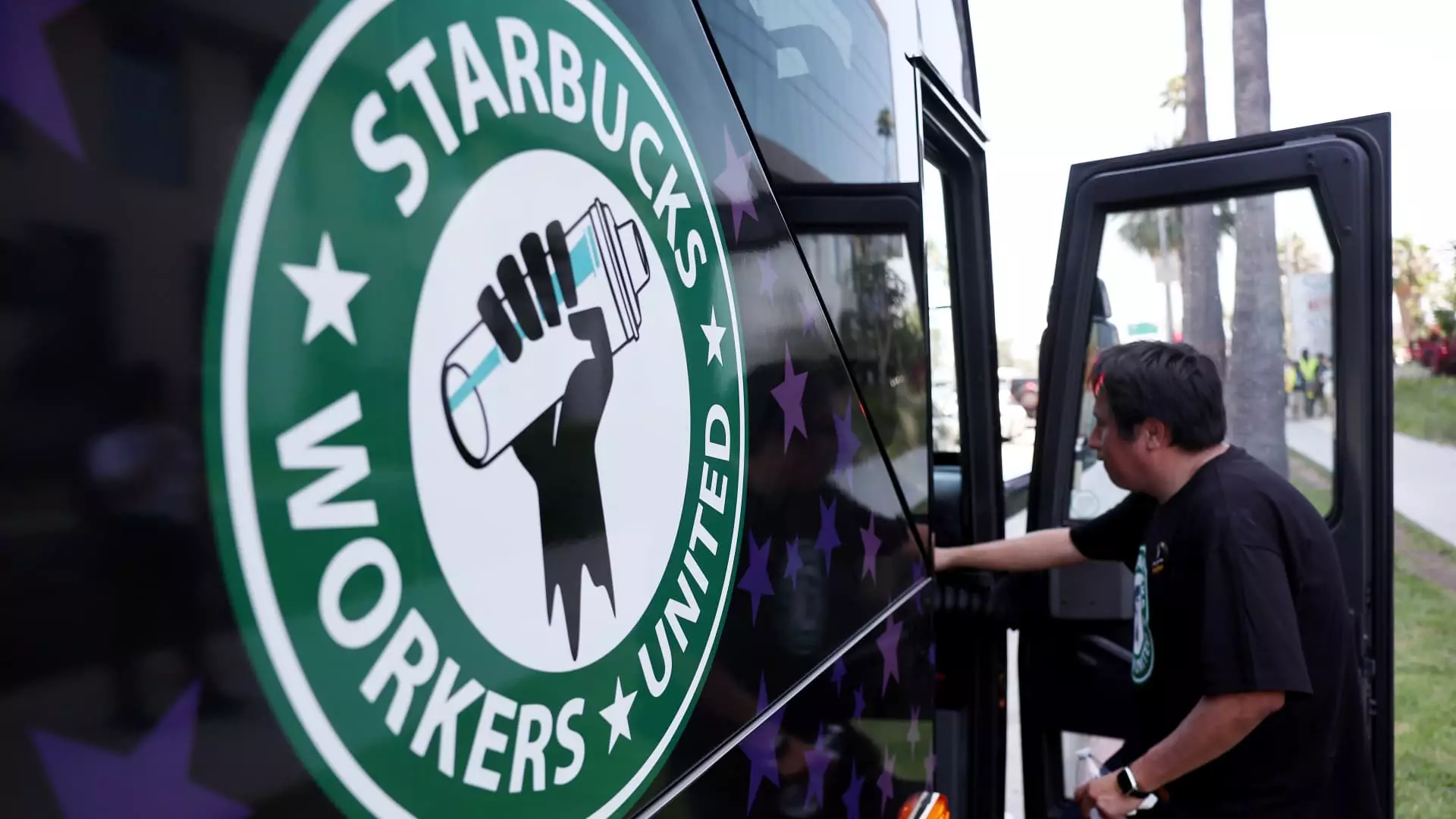Union Turbulence at Starbucks: An Analysis of the Recent Strike Authorization

On Tuesday, an overwhelming 98% of unionized baristas at Starbucks voted to authorize a strike, signaling a critical juncture in their quest for a binding contract with the coffee giant. This striking decision reflects not only the frustrations felt by the workers but also a deeper narrative of labor rights and the ongoing struggle against corporate resistance. As the bargaining delegates gear up for what they hope will be a conclusive negotiation session, the stakes have never been higher for both the workers and the management.
The backdrop to this strike authorization is marked by extensive yet contentious negotiations between Starbucks and Workers United. Over the past year, both parties have engaged in what the union describes as “hundreds of hours” of discussions, resulting in several tentative agreements covering various work-related issues. However, the union has accused Starbucks of stalling on critical matters such as comprehensive wage adjustments and the overall enhancement of benefits for employees. In many ways, these negotiations resemble a game of chess, where each side meticulously anticipates and counters the other’s moves.
Starbucks, on its part, has publicly labeled the union’s portrayal as misleading. The management claims that productive conversations have taken place, pointing to over thirty agreements reached on significant topics since April. This disparity in narratives raises questions about transparency and the intentions behind the negotiation process. While both sides may highlight their victories, the unresolved unfair labor practice cases serve as a grim reminder of the friction that continues to permeate their relationship.
The climate of negotiations shifted earlier this year, with both parties initially expressing a willingness to work collaboratively. However, recent developments indicate a cooling of relations, especially following the union’s pivotal vote. The juxtaposition of Starbucks’ commitment to continue bargaining in good faith—championed by the new CEO Brian Niccol—against the backdrop of enduring worker grievances accentuates the complexities inherent in labor negotiations. Niccol’s recent announcement to enhance parental leave could be perceived as a positive step, yet the contrast with the reportedly smaller planned wage increases underscores the balancing act that Starbucks must navigate.
A strike at this stage could have profound implications, not only for the company’s operations but also for the broader labor movement within the service sector. With more than 500 company-owned stores having voted to unionize since the inception of this movement in Buffalo three years ago, a failed negotiation could catalyze a new wave of activism and solidarity among workers seeking to assert their rights. The possibility of a strike sends ripples through the corporate framework, testing Starbucks’ resolve and strategies while simultaneously spotlighting the critical need for corporate accountability in labor practices.
The events unfolding at Starbucks are a microcosm of the larger challenges and dynamics facing labor unions today. As both sides prepare for their final scheduled session this year, the outcome remains uncertain, but one thing is clear: workers’ rights and corporate responsibilities are at the forefront of this ongoing conflict.





